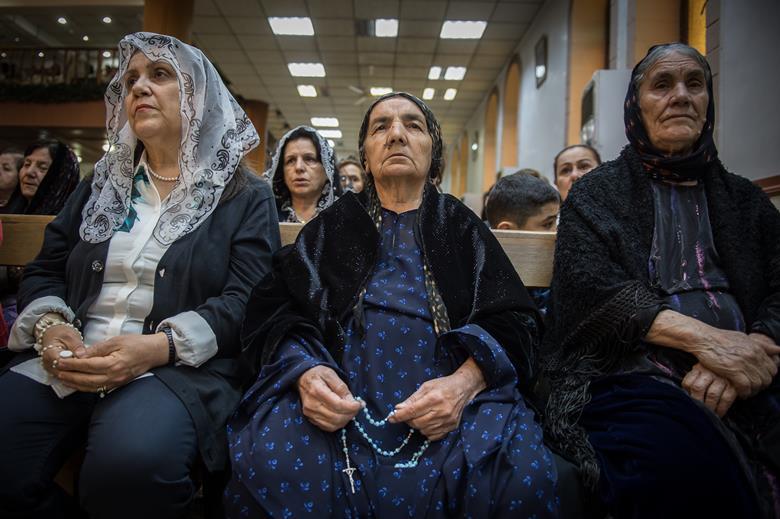In a recent legal decision that has sparked widespread debate and raised concerns about religious freedom and individual rights, a court in Iraq has ordered a married Christian mother to convert to Islam. Although she is a married woman, an Iraqi court recently told Elvin Joseph that she and her three children should convert to Islam because Joseph’s mother had converted to Islam when Joseph was 15. The ruling has ignited intense discussion both within the legal community and among the general public, prompting reflection on the delicate balance between religious autonomy and judicial authority.
The case revolves around a woman, who was instructed by a court to embrace Islam in order to retain custody of her children. The decision was made in the context of a divorce proceeding, where the husband, a Muslim, sought custody of their children. The court’s rationale behind its directive stemmed from the interpretation of Islamic law, which typically grants custody of children to the Muslim parent in cases where the spouses belong to different faiths.
Critics of the court’s ruling argue that it infringes upon the woman’s fundamental right to freedom of religion, as enshrined in many international human rights instruments. Mandating religious conversion as a condition for child custody not only violates individual autonomy but also sets a dangerous precedent, potentially emboldening further encroachments on religious liberties.
Furthermore, opponents contend that such a decision is a manifestation of religious discrimination and undermines the principle of secularism. In secular societies, courts are expected to remain neutral on matters of religion, ensuring that legal decisions are based on objective criteria rather than religious affiliations.
Conversely, proponents of the court’s ruling emphasize the importance of considering the best interests of the children involved. They argue that the decision was made in accordance with Islamic law, which prioritizes the religious upbringing of children within the faith of the Muslim parent. From this perspective, the court’s directive was aimed at preserving the children’s cultural and religious identity, rather than imposing religious beliefs on the mother against her will.
However, it is crucial to recognize that religious conversion is a deeply personal and profound decision that cannot be coerced or mandated by external forces. True religious conviction arises from sincere faith and spiritual awakening, not from legal compulsion.
This case underscores the complexities inherent in adjudicating disputes involving religion, family, and law. While courts have a responsibility to adjudicate conflicts and protect the rights of all parties involved, they must do so in a manner that upholds the principles of fairness, impartiality, and respect for individual freedoms.
Moving forward, it is imperative for legal systems to strike a delicate balance between respecting religious diversity and safeguarding individual liberties. Courts must remain vigilant in upholding the principles of secularism and non-discrimination, ensuring that legal decisions are guided by principles of justice and equality for all, regardless of religious affiliation. Only then can the rights and freedoms of individuals be fully protected in a pluralistic society.



Be First to Comment